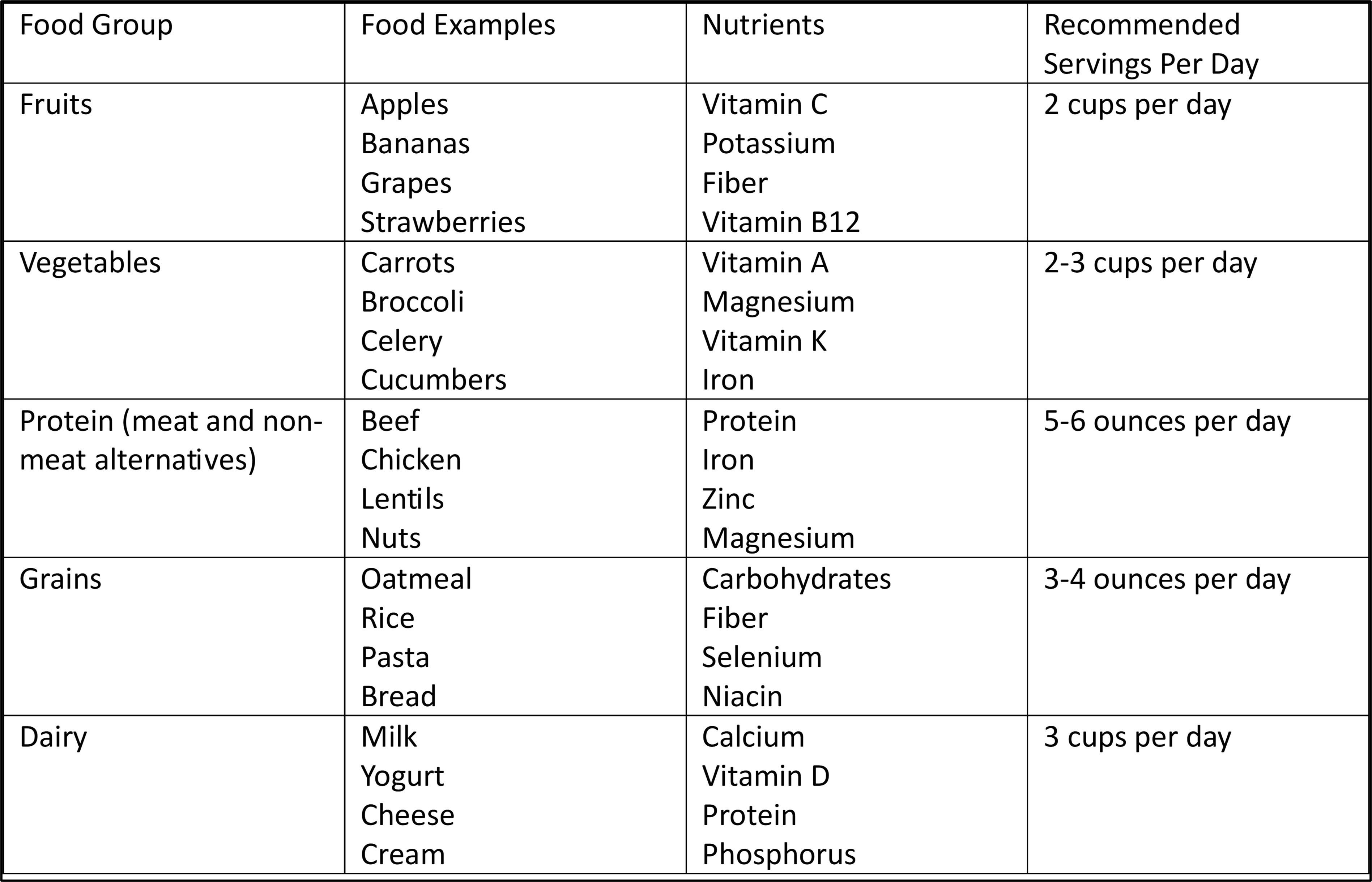Vitamin & Mineral Checklist: Are You Meeting Your Nutritional Needs?
We have all heard the saying you are what you eat, but do you know the correct amount of vitamins and minerals you need a day in order to maintain your best health? There are certain levels of vitamins and minerals our bodies require to function. For example, calcium and vitamin D are needed for bone health and iron and vitamin B12 is needed for red blood cell health. That is why as part of National Nutrition Month, we want to take this opportunity to discuss the amount of vitamins and minerals you need daily and how to make sure you get them.
Get Your Vitamins and Minerals Here
To stay healthy, your body needs 13 vitamins. It is important to make sure you get your daily dose of vitamins as some vitamins, called fat soluble vitamins, can be stored by our bodies. While other vitamins, called water soluble vitamins, need to be replaced every day.
Minerals also play an important role in keeping you healthy. Your body uses minerals for making enzymes and hormones as well as keeping your bones, muscles, heart, and brain working well.
Vitamins and minerals occur naturally in food and can be added to our diets from supplements if needed. The United States Department of Agriculture (USDA) along with the Department of Health and Human Services has created dietary guidelines to help guide you in getting the correct amount of vitamins and minerals. Their MyPlate method discusses the five food groups and the recommended proportions you need to get the necessary vitamins and minerals we need from our food.
Below is a chart of examples of foods in the MyPlate food groups and which type of nutrients they provide for your body. The recommended servings per day is for adults over the age of 18. It is important to note that every person may be different, and you should talk with your doctor or advanced practice providers (APPs) for personalized recommendations based on other medical conditions or medications you take.

Why Vitamins and Minerals Are Important
Vitamins and minerals support all the systems in our body including heart health, digestive system, immune system, brain health, muscle health, and bone strength. When we are not getting the recommended nutrients, we are at a higher risk of conditions such as anemia, osteoporosis, obesity, constipation, and infections. If you are concerned you might not be getting the right amount of vitamins and minerals, you should make an appointment to see your doctor or APP, who can order lab work to test for common nutrient deficiencies. Depending on the results, it may be recommended you take a prescription medication to treat your condition, start supplementing with over-the-counter vitamins or minerals, or increase your dietary intake of nutrients. If an over-the-counter vitamin or mineral is recommended, here are some helpful tips for selecting one.
- Look at the labels: The label will tell you how much of the vitamin or mineral is contained in the supplement. It is important to follow the recommendations from your doctor or APP for how much you should take. Remember that it may require more than one pill per day to add up to the recommended amount. You can also consult with a pharmacist if you have any questions about the label.
- Do not take unnecessary vitamins or minerals: Most of us receive the recommended amounts of vitamins and minerals through the foods we eat. In the United States, foods, such as bread and cereal, are often supplemented with extra vitamins and minerals, and it should be noted that there is a potential for harm if you have too high of levels of certain vitamins or minerals.
- Consider products that have undergone third-party testing: Over-the-counter supplements are not regulated by the Food and Drug Administration (FDA) in the United States. Third-party testing is optional but can show that a company has taken an extra step to verify safe practices. Two examples of third-party certifications include the United States Pharmacopeia (USP) and the National Sanitation Foundation (NSF). If a supplement does not have USP or NSF certification, it does not mean it is not safe, but it has not undergone additional testing.
- Ask your doctor, APP, or pharmacist to confirm drug interactions: If you are taking other prescription medications, be aware that there could be drug interactions between supplements and your prescription medications.
Making sure you are getting the recommended amount of vitamins and minerals per day is important for your overall health. The best way to get them is through the foods you eat, but at times, supplements may be needed to meet your nutrient needs. Talking with your doctor or APP to discuss and diagnose conditions caused by low nutrient levels is key to staying healthy. If an over-the-counter supplement is needed, check the labels, and talk with your doctor, APP or pharmacist about potential drug interactions and brands before taking. Your care team is here to help you create healthy eating habits that help you feel happy and keep you healthy!
*An advanced practice provider is defined as a nurse practitioner or physician assistant.